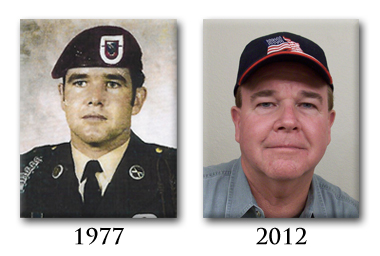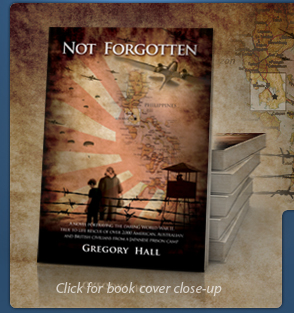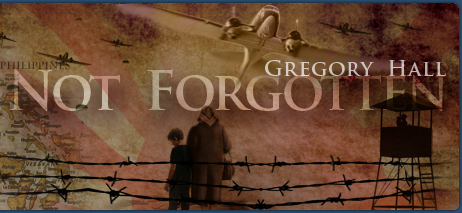
![]()
The lulling sound of the water lapping against the seawall, the bright moon in the cloudless night, the warm, light breeze coming off the ocean, all made the moment so special. He wondered if his senses were heightened because of the setting or because he was with a woman he hoped to express his love for. It didn't matter, it was all so perfect as they strolled hand in hand along the seawall of Cavite Bay. Along the seawall were low lights, far enough apart as to only cast individual glows along the bay. The young couple, Michael Bradford and Mary Hayden, slowly came to the next light, and without a word from either of them, they stopped and gazed over the bay...
![]()
Pointing to a map on the wall of the location of the prison camp, Captain Ford said, "The drop zone is right here," putting his finger next to the camp. He added, "It's important we get as close to the camp as possible, but not on the camp." ... "Drop altitude between 400 and 500 feet, no higher. I don't want my men in the air too long; they can be shot and killed before hitting the ground if they are dropped at a higher altitude," said Ford ... "Oh... and ask your flight crews not to mention the low drop altitude to my men. They will have enough to think about without knowing that, too," said Captain Ford.

The author retired in 2011 after serving nearly 24 years as a Special Agent of the Federal Bureau of Investigation. He has appeared as a military historian on The History Channel in a documentary of the liberation. For the documentary, he traveled with a film crew, as well as with four of the participants, to the Philippines. During the filming in the Philippines, he visited the sites of the two internment camps, Los Banos and Santo Tomas. Additionally, he had firsthand experience in visiting the locations of the beachhead where the AMTRACs came ashore, the airfield used by the paratroopers who parachuted into the action as well as the vacated prison where the liberated internees were housed. The author spent numerous years researching the liberation and has personally met many of the participants. He has attended five reunions of the former paratroopers and internees.
Gregory Hall's father served as a paratrooper of the U.S. Army Airborne Division that liberated the camp at the time of the rescue. The author is a second generation paratrooper and served with the U.S. Army's 82nd Airborne Division during the mid-1970's. He attained the rank of Sergeant while in the Airborne Infantry.
The author is a native of California and was raised in Las Vegas, Nevada. After being discharged from the U.S. Army, he returned to Las Vegas and attended the University of Nevada at Las Vegas (UNLV). Upon graduation from UNLV, he entered the U.S. Air Force and received a reserve officers commission. As as reservist, he lived in Arkansas and was assigned to an active duty U.S. Air Force, Security Police Squadron. concurrent with his reserve duty, he was a Deputy Sheriff for three years before starting his career with the FBI in 1987.
The novel has been a work of passion for Gregory Hall. The desire to write the novel dates back to 1976 when the author was stationed at Fort Bragg, North Carolina. His father, like many World War II veterans, rarely talked about the war. The author took advantage of being in an airborne division and began researching his father's airborne unit. It became evident to him that the heroic exploits of U.S. paratroopers in the Pacific Theatre of Operations were overshadowed by their brother paratroopers in the European Theatre of Operations. Similarly, the successful rescue of over 2,000 prisoners 30 miles behind enemy lines in the Philippines was overshadowed by another historical event that happened on the very same day, February 23, 1945. That event was the historical raising of the American flag by U.S. Marines on Mount Suribachi on the island of Iwo Jima.
The title of his novel has multiple meanings; first, that the successful rescue of the internees by U.S. paratroopers is "Not Forgotten"; second, the hardships experienced by the civilian prisoners are "Not Forgotten"; lastly, American civilians and soldiers in the future who may become prisoners of war should remember that even in the darkest of times they too are "Not Forgotten."




